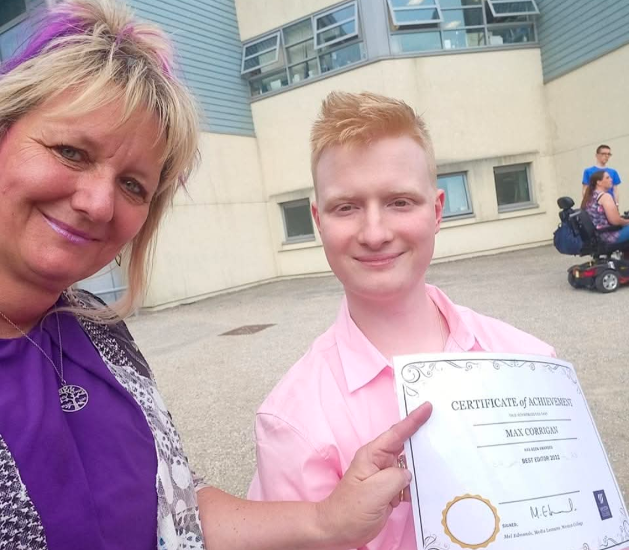
UCLH clinician scientist wins major international prize for pioneering tumour research
13 February 2026
Publish date: 27 June 2025
UCLH is supporting a new UK-wide health and care research registry, as part of the nation’s biggest-ever recruitment drive to clinical trials.
Be Part of Research is a free online registry set up by the National Institute for Health and Care Research (NIHR) which matches participants to suitable studies based on their interests, location and demographic data, such as age, sex and ethnic group.
UCLH managing director of research Nick McNally said: “At UCLH, we offer numerous opportunities to research participants and our close relationship with UCL is key to that.”
“We have a particular focus on innovative studies that are carried out at an early stage in the research pathway, studies which gather crucial first data on new treatments and diagnostics. These often mark the first time a new innovation is tested in people.”
UCLH has one of the largest active portfolios of research in the UK, including having one of the largest portfolios of homegrown studies in the country – those studies developed and led by our own investigators and sponsored by UCL or UCLH.
“We also team up with other hospitals and healthcare organisations, including primary care, to extend the opportunities of research participation to more of our local population in north London.
“Our research results have national and international reach and impact. However, none of what we do would be possible without the participants who volunteer to be part of research at UCLH and our partner organisations.”
In 2024/25 alone, UCLH recruited 12,007 participants to 465 studies supported by the NIHR Research Delivery Network.
“UCLH is also home to the NIHR UCLH Clinical Research Facility (CRF), a purpose-built environment for patients and volunteers taking part in early-phase clinical trials and other research projects,” says CRF general manager Raj Khengar.
“The work is split across two London sites, one on Tottenham Court Road and the other within the National Hospital for Neurology and Neurosurgery.”
The CRF provides a coordinated infrastructure to support patients and volunteers and help clinical investigators to conduct clinical research safely, efficiently and cost-effectively, with a specific focus on early-phase clinical trials and experimental medicine.
Meanwhile, the new NIHR registry – which is available through the website or the NHS app – aims to enlist another 1.5 million people to the 566,000 already registered to take part in research, and will help UCLH recruit even more people to its studies.
The new NIHR registry allows participants to choose conditions for trials they want to take part in. They are then contacted about suitable trials by email, making it easier than ever to find and take part in vital health and care research.
The campaign to recruit more research participants will also be at the forefront of the UCLH Research Open Day taking place on Thursday 3 July, from 1pm to 4.30pm. Patients, staff and members of the public will have the chance to explore cutting-edge research and innovation happening across UCLH, with the event featuring 50 interactive stalls. The day will also include hospital tours and talks for local schools.
Be Part of Research is run by the NIHR in collaboration with the NHS and devolved administrations in Scotland, Wales and Northern Ireland. It is funded by the UK government, through the Department of Health and Social Care (DHSC).
Three UCLH research participants, one neurology patient and two cancer patients, shared their stories as part of the NIHR campaign.
Colon cancer patient Daniel first discovered something was wrong when he woke up in the middle of the night with a strange pain in his stomach. After first line treatment did not succeed, his hospital suggested he take part in a clinical trial at the NIHR UCLH Clinical Research Facility.
The trial looked at the safety and tolerability of a new drug of advanced or metastatic solid tumours. The treatment involved regular doses given intravenously. Daniel did not hesitate to take part in the trial. The experimental treatment has had a dramatic impact and proved to be a lifeline.

Daniel said: “I thought I was gone, but the lights are back on at the end of the tunnel. This clinical trial has proved to be a life saver for me and it’s given me more time with my wife.”
Jayne Townley started noticing that her son Max was having mobility issues when he was just three. Max also struggled with fatigue and was sent home from school every day after just two hours. Finally, at the age of 12, he was diagnosed with Friedreich’s Ataxia, a rare neurodegenerative disease.
Jayne’s research led her to an international trial for an experimental treatment at the CRF based at National Hospital for Neurology and Neurosurgery. She secured Max a referral, and he signed up when he was 16.

Jayne said: “The medication significantly improved Max's speech, dexterity, and overall quality of life. His fatigue has lifted so much that he regularly goes to the gym. Max has got his life back.”
Max said: “It's nice to know that by taking part in a trial I've indirectly helped other people. It's a good way to get my contribution cemented in history.”
Thyroid cancer patient Eilis was diagnosed in 2012. At the time her cancer was considered incurable. Searching for help online, she found out about a trial for a new cancer treatment at UCLH.
Eilis said: “I responded to the trial drug, and, within weeks, the tumour reduced dramatically. After six months, I was able to have the tracheostomy removed and the procedure reversed. For me the trial has been a life saver! Going on a research trial means there is more hope for you. A research trial is not the final option anymore. It can be the first option.”
Was this page helpful? Let us know